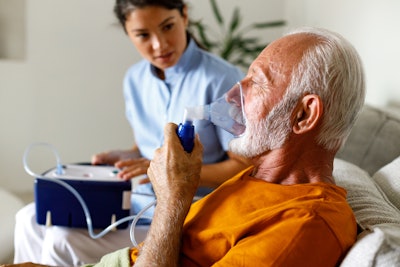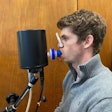
The American College of Chest Physicians (CHEST) has announced a critical milestone in its ongoing push for greater access to noninvasive ventilation therapies for COPD patients.
After more than a decade of strategic efforts led by the college, the Centers for Medicare & Medicaid Services (CMS) unveiled a proposal, “Noninvasive Positive Pressure Ventilation (NIPPV) in the Home for the Treatment of Chronic Respiratory Failure Consequent to COPD.” According to a news release, that includes substantial proposed changes to federal coverage guidelines for NIV devices used in the home.
The proposed changes included new coverage criteria for respiratory assist devices (RADs) and home mechanical ventilators in COPD patients. The changes also do away with the previous requirement for a trial of RAD without a backup rate before escalating to a device with a backup rate capability.
The proposed guidelines, addressing coverage of noninvasive positive pressure ventilation for patients with chronic respiratory failure due to COPD, reflect nearly all the major recommendations submitted by a CHEST-convened expert panel.
Among those recommendations made were:
- Removal of the need for overnight oximetry testing
- The ability to initiate therapy using bilevel devices with backup rate capability
- Increased duration of time to meet adherence to criteria in those patients actively engaged in their care
“We are thrilled that CMS has embraced recommendations that will directly enhance patient care in noninvasive ventilation,” said Nicholas Hill, MD, chair of the CHEST-initiated COPD technical expert panel. “This is the culmination of years of collaborative work by CHEST and the broader respiratory health community, and it is encouraging to see that advocacy leads to real change.”
Peter Gay, MD, FCCP, another member of the panel, said that NIV is proven to improve the quality of life and survival in patients with COPD, yet outdated or inconsistent coverage policies have sometimes resulted in inappropriate device use or delayed care. CHEST advocacy directly targeted those challenges, calling for policies that streamline access and ensure clinical decisions are driven by patient needs rather than administrative hurdles.
“This is a good sign that progress is being made in the right direction,” Dr. Gay said. “And we will keep working to share evidence-based arguments until these changes are solidified and can improve the lives of our patients.”























